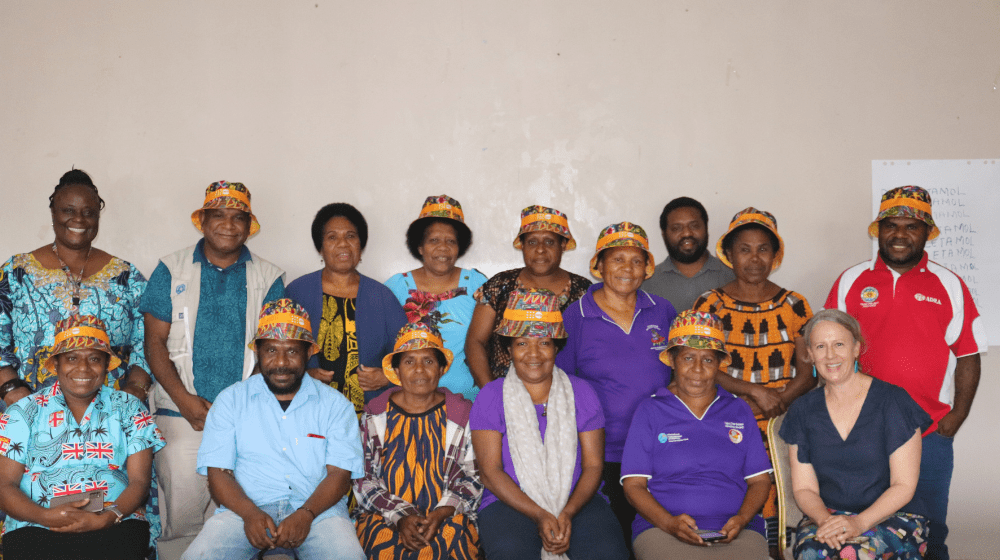“Currently, most service providers do not adequately report maternal and perinatal deaths. Most of us have never completed a maternal or perinatal death form. If we do, those who die on the way to the health facility are not included. When it comes to maternal or perinatal death reporting, instead of taking time to document what happened by reaching out to the community/facility from where the woman was referred, and including all details regarding the immediate past circumstance that preceded her death, most often very little is written in the form, making it difficult to review,” expressed Mr. Edwin Benny, Morobe Provincial Health Authority’s Disease and Surveillance Officer.
“Most of our health workers are not sensitized enough to collect such data and we do need more training to be provided to Officers-in-Charge at local health facilities and local aid posts right at the rural level.“
Mr Benny was one of 13 health workers from the Morobe Provincial Health Authority and health facilities within the districts to attend the two-day training in Maternal and Perinatal Deaths Surveillance and Response from the 15th-17th of November 2023 in Morobe Province, Lae town.
Facilitated and led by the United Nations Population Fund in partnership with the Burnet Institute Australia, this MPDSR training key focus was to improve the capacity to strengthen the MPDSR system to do surveillance, identification, and notification of maternal deaths and perinatal, especially in the rural communities who most times do not have their maternal and perinatal deaths recorded.
Through insightful discussions and shared experiences, different challenges were explored, especially those posed by the three delays in receiving maternal healthcare; the delay in taking the decision to seek healthcare, the delay in reaching health centers and the delay in receiving adequate care when at the health center. Upon discussion, together they reached different crucial solutions to ensure timely and adequate care for pregnant women.
“More rural workers need to be trained in collecting data on maternal and perinatal deaths and how to correctly fill out the MPDSR forms and send them to the PHA for proper planning, ” said Mr Wattie Wando, the Monitoring and Evaluation Manager at the Morobe PHA.
“The PHA spends a lot of money on medevac mothers encountering complicated birth delivery. This can be changed if more skilled training is provided at the community level for community health workers. This can help us to better reduce the first two delays that happen at the community level. These delays are first, the delay in making decisions to go to the health facility and second, the delay in reaching the health facility.”
The participants shared how the training had been an ‘eye-opener’ for them and had ignited a passion to go out into their communities and start collecting data, filling the MPDSR forms correctly and counting incidents accurately, both the ones they see and even the ones they do not see.
The MPDSR training was also conducted last week in Goroka, Eastern Highlands Province for the health workers of the Eastern Highlands Provincial Health Authority.


